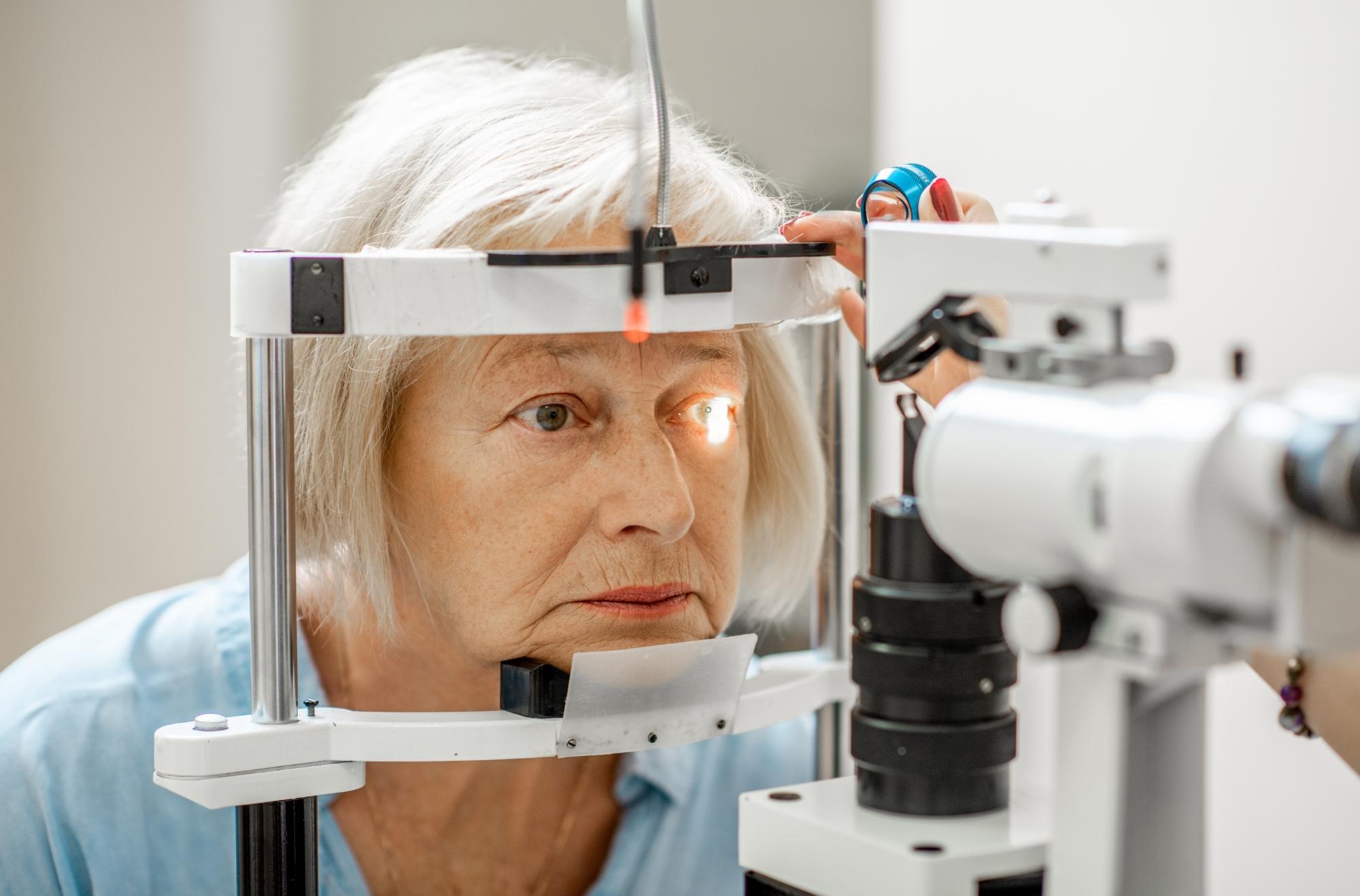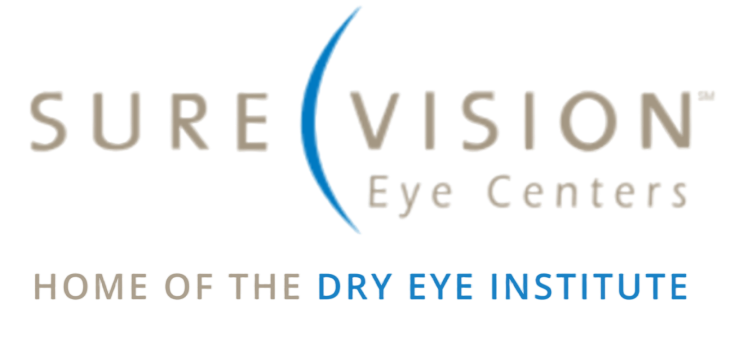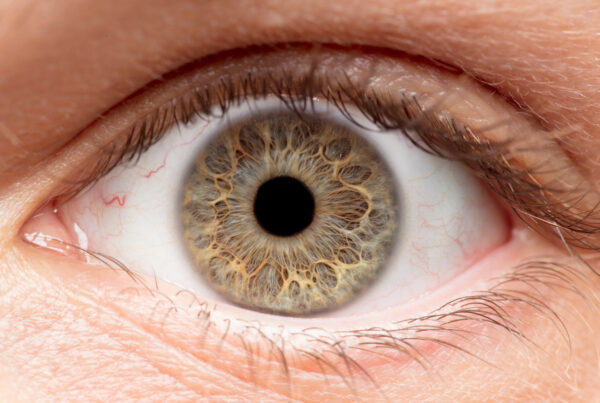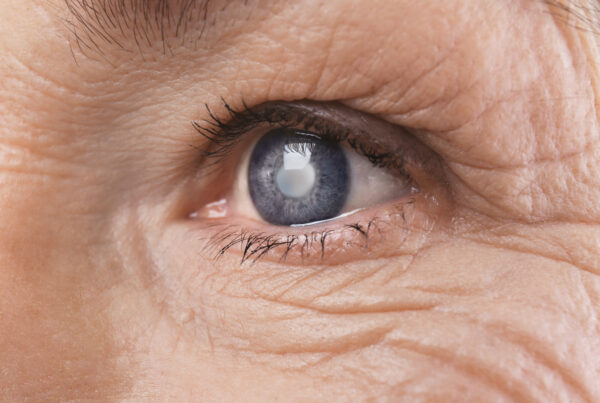
June is Cataract Awareness Month and the whole month is devoted to this condition because of its extreme prevalence and significance. Here are some basic facts about cataracts that may surprise you:
- Cataracts are the leading cause of blindness worldwide
- 25 million Americans have cataracts right now
- Cataract Surgery is the most common surgery performed in the United States
And as cataract surgeons we have the unique ability and privilege to be able to cure this condition and restore vision for our patients. As you might guess, this is a very rewarding way to spend one’s time and just as much of that time is spent on educating patients before, during, and after surgery about the surgical options, process, and recovery. The following is intended to provide you with the information that often comes up during these discussions.
What is a Cataract?
In the middle part of the eye, behind the pupil, is a natural lens that is needed to focus your vision. Most people are born with a clear lens that becomes progressively more cloudy and yellow over the years. This cloudy lens is called a cataract.
What are the Common Symptoms?
The most basic answer to this is that cataracts make your vision worse, but they can do this in several ways:
- Decreased Clarity of Vision – blurred vision making it harder to see road signs at a distance or small print up close even with your glasses.
- Glare – when light coming into the eye hits the cloudy spots within the cataract it scatters the light leading to a “washed out” appearance to the vision making it harder to drive at night with oncoming headlights or harder to see on very bright, sunny days.
- Halos and Starbursts – Many patients with cataracts will notice that point sources of light such as headlights can have halos, rings, or starbursts around them that worsen as the cataracts worsen.
- Dimming of Vision – As the cataract goes from a clear lens to a yellow lens, to a more advanced brown lens it absorbs/blocks more and more of the light coming into your eye. This worsens night vision and makes it challenging to read in low light situations.
When is Cataract Surgery Needed?
Cataract surgery is one of the most effective and safest surgeries you could ever have done, but no surgery is without risk. The final decision for when cataract treatment is needed is and should be made on an individual basis between the patient and their surgeon after weighing their individual benefit and risk. However, the following can provide you with some basic information on this topic:
Patients with mild cataracts that are not causing any problems with their vision do not need cataract surgery.
Moderate cataracts cause a shift in the focus of the eye that can often be corrected by updating glasses or contacts. If vision can be corrected with non-surgical treatments such as this, we recommend trying that first before consideration for surgical intervention.
More significant cataracts cause a decrease in vision that cannot be corrected by updating glasses. In these cases, removal of the cloudy lens with cataract surgery is the only way to improve the vision.
Benefits of Cataract Surgery
You’d be absolutely amazed what cataract surgery can do. Of course, it improves the vision of millions of people every year and if that were the only thing it did it would still be one of the most valuable inventions of all humankind in all human history. But that is only the tip of the iceberg of how it benefits patients. Over the years, research has shown cataract surgery to provide countless additional benefits. For instance, cataract surgery has been shown to:
- Decrease risk of falls
- Decrease risk of hip fractures
- Decrease risk for motor vehicle accidents
- Decrease rates of depression and suicide
- Improve mental health
- Improve compliance with treatment of other medical conditions
- Decrease rates of dementia
- Decrease rates of mortality
These are only a few, there are many more. And, while most people wouldn’t think of these things as benefits to cataract surgery once you read them, it seems clear how improving one’s vision could and does positively impact each of these things. This is one of the many things that makes performing cataract surgery for patients so rewarding. Because they are so grateful, they happily share their gratitude with us and they share their stories about how we have improved not only their vision, but their lives. There are countless stories that I could provide to illustrate this point, but I will give you one that stands out in my mind.
In 2017, my wife and I were blessed with our first child—a girl. My daughter was born on a day that I was supposed to be in the operating room performing cataract surgery for several of our patients. However, that didn’t happen that day. While I was at the hospital with my wife meeting our daughter for the first time our staff was calling our patients to update them on the situation and ask them to kindly reschedule. As a result, all the patients on that day knew the news of my daughter’s birth.
When I returned to work, I performed surgery for one of these patients, who will of course remain nameless. A few weeks later when I saw him back in clinic for his postoperative visit, we were both happy to see the dramatic improvement in his vision, but if it were only for that part of the conversation I would not still remember his words to this day.
He looked at me and said, “When your daughter is old enough to understand, please tell her something for me.” “Ok,” I said cautiously, worried that he might be upset about the inconvenience of his rescheduled surgery. He then looked at me and said, “Tell her that her dad saved my life.”
I was completely floored! He went on to tell me how the extreme loss of vision caused by his cataracts had caused him to stop doing literally everything in life that he enjoyed, which had led understandably to extreme depression and thoughts of suicide. His words will stick with me until the day I die, “Tell your daughter that her dad saved my life.” How powerful! That is what cataract surgery can do and that is why we love to be able to do this precious thing for our patients.



